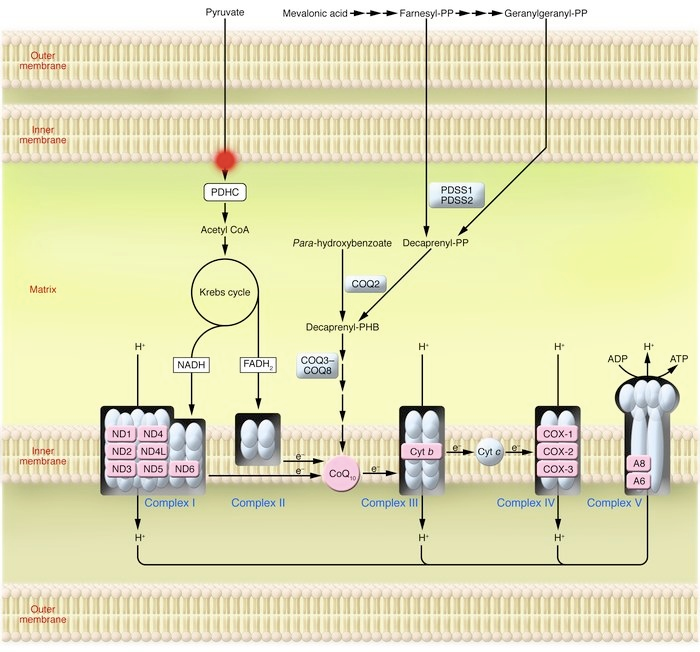PDH Complex Deficiency
Pyruvate dehydrogenase deficiency is a metabolic disorder associated with abnormal function of the mitochondria in cells, thus depriving the body of energy. Progressive neurological symptoms usually start in infancy but may be evident at birth, or in later childhood; these symptoms may include developmental delay, intermittent ataxia, poor muscle tone (hypotonia), abnormal eye movements, or seizures. Severe lethargy, poor feeding, and tachypnea (rapid breathing) commonly occur, especially during times of illness, stress, or high carbohydrate intake. Childhood-onset forms of the condition are often associated with intermittent periods of illness but normal neurological development. The most common form of pyruvate dehydrogenase deficiency is caused by mutations in the E1 alpha gene, and is inherited in an X-linked dominant manner; all other forms are caused by various genes and are inherited in an autosomal recessive manner. (Source: Genetic and Rare Disease Information Center)








